Interview: Jerome Clementz
INTERVIEW
Jerome Clementz
WORDS MATT WRAGG
PHOTOS ALE DI LULLO/CANNONDALE
For anybody who has been following enduro for the last few years, Jerome Clementz needs little in the way of introduction. If it's not a name you're familiar with, the simplest thing to say is that he's one of the most naturally talented bike handlers mountain biking has ever seen. To watch him ride is something quite special, he can just do things on a bike that leave you feeling humbled and awkward. Worse than that, he makes it look like he isn't even trying most of the time, like he's playing around. All of this with a constant smile on his face. There's little in the way of ego there either, spend any time talking to him and one thing becomes clear, more than anything else, he simply loves riding bicycles and he's having a lot of fun doing it.
Speaking with him it's hard to keep in mind that he's also a very serious competitor when it comes down to it. You don't win the Megavalanche three times (once in junior, twice in senior), compete at the downhill World Champs (Kaprun, 2002 as a junior) or beat Nico Vouilloz in a two-day enduro race by playing around. Right now, he's also one of the handful of people who make their living from racing enduro. Along with Remy Absalon and Rene Wildhaber, he is one of the first people to pay his bills by riding and competing in the discipline. We sat down with him to talk about how he came to enduro, how seriously he takes his racing and stopping halfway down the Megavalanche to adjust his seatpost.
 What did you start out racing originally?
What did you start out racing originally?In France, until you're 14 years old you can do cross-country, downhill and trials, I also know how to use a map, so I was doing this. Then, in the under-16 category, I was doing cross-country and downhill. I won the French series in cross-country and finished second in the downhill category behind Julien Camellini. In the junior category I just focused on downhill and I was in the French Federation team - in 2002. I did the European Championships in Livigno and the World Championships in Kaprun. I got third in qualification and finished tenth. I think I was able to do between fifth and tenth, and I finished tenth. It was a really good experience to be able to do that and I really enjoy racing downhill. At the same time, it's Kaprun, and Kaprun is more like an enduro track. The first part was in the woods, with mud and roots and stuff and at the end there is a long pedalling part and a flat-out section in the grass. After this I got injured, I broke my wrist twice in the same year, so I didn't race.
 How did you come to end up racing enduro?
How did you come to end up racing enduro?It's nearly ten years I've just been focused on enduro. I did downhill until 2005, but only one or two, and then turned to enduro in 2006. What made me change was the fact that when you do downhill... First, where I live, I can't really train as you don't have skillifts. I have hills that suit enduro kind of riding, it's not too steep. For people that don't know, I live on the same mountain as La Bresse, just on the other side. So we have 1,000m of elevation and a lot of nice, quality singletrack, but not a lot of downhill. So when I was training for downhill I was doing more enduro to train for downhill. When you travel to do a downhill race, you travel across the country, and you can train a bit on Friday and then on Sunday you do one run in the morning and one run in the afternoon. I wanted to go to a place, like in the Alps and see more than just one track. That is what enduro can offer you. At the end of the weekend you have seen a lot of trails around the resort where you are staying and you don't want to ride your bike any more, you're done. You just want to get in your car, go back home and sleep. This is the feeling I wanted to have. This is what attracted me. For me, even when I was doing downhill, the main event for me was already the Megavalanche as it existed already since 1993/9. I started the first year when I was fifteen and except for the year when I was injured in 2003, I have done all the Mega races. I was doing some of the Enduro Series races, but not all of them as there were a lot of races in the South of France and I live in the North. I did the Salomon Avalanche trophy, the Enduro Series and just focused on this kind of racing.
 There's a lot of debate on whether the Megavalanche should be considered an enduro race or not, how do you see it?
There's a lot of debate on whether the Megavalanche should be considered an enduro race or not, how do you see it?For me it is the same sport. It's the same physical abilities and skills that you need, but it's a different format. At the beginning I wanted to integrate it into the enduro circuit, but after discussion and talking with people, I think now that enduro as they want to develop it is a race that you can do almost everywhere. Megavalanche you can only do if you have a big mountain. So I think it is enduro, but it's a specific event. Megavalanche and Mountain of Hell are two big events that are different. It's like Downieville, it's the enduro spirit, but it's not the same way of doing it. I think Megavalanche is recognised without being part of the World Series circuit, it's already a legend and the thing is, if you want to have a sport that grows at an international level, we need to have rules that work at a local level and a national level. The rules are set so you can do an enduro with 100m drop, you can do enduro with two minute stages. Megavalanche is harder to define and to put it on in every country. So that's why it's good to separate the two things, the same people will race it, but it's its own race.
 How much has enduro changed in the last ten years?
How much has enduro changed in the last ten years?It changed a lot. At the beginning we had bikes that were over 15 kilos, for sure. And the main goal was to have the bike in one piece at the bottom. I said I took part in most of the Megas, but I didn't finish half of them! Because, at the beginning, fifty percent of the time, my bike didn't make it to the bottom, hahaha, It was, yeah... More challenging to get to the bottom and it was way heavier. We didn't have any specific parts for enduro, just bikes with a little bit less travel, no adjustable seatpost, downhill tyres... Just simple bikes. Two or three by nine. It was different. I remember having the first seatpost and it was a bargain, because it was breaking all the time. Half the way down you just had a stick, a piece of metal between your legs and you were like "oh shit." It improved a lot. I remember the first Mega I did, we stopped two or three times during the race to put the saddle higher or lower. We had two kilometres on the road, because we weren't allowed to take the trail, no qualification... It was a different atmosphere. The first year I did Mega, there were 700 riders and I started 642 - I still have the number! It's way different now, you have qualification, your position is defined by the qualification, you know that your bike is made for this kind of event and there are more and more people that train for this event.
 So, is the racing getting tougher?
So, is the racing getting tougher?Yeah, it's getting tighter and tighter every year.
 Has the Enduro World Series changed things much for you?
Has the Enduro World Series changed things much for you?For the last few years we had big races, like the Megavalanche, the enduro series in France and Italy, Crankworx, so we were working hard to make results. This year it gives you more motivation to do things right. Enduro was growing, but we had the same races for a long time, so it was kind of the same schedule every year. So this year it gives you more motivation for new stuff that comes, a new title. Maybe not more training, but you do it more seriously and try to find new things to improve yourself.
 You're a riders' representative for the Enduro World Series, how did that come about?
You're a riders' representative for the Enduro World Series, how did that come about?They decided to give me this opportunity late-on, but as I race and I organise some races, I like to talk with the organisers of the races. When Chris, Enrico and Fred Glo were talking with the UCI I was just trying to get some information, I had some interest. Then when they didn't find an agreement with them and the UCI said they don't want to get involved with this, I was just there and saying "I don't know if I can do a lot, but if you need any help, any advice, I will try to support you. If you do something, I will be there and support the sport." Once they said, ok, we'll do the World Series as it is now, they contacted me and said they would people from the industry and the riders' side to give us some advice and feedback. It was too late to have an election, so for the first year they picked Tracy and Curtis, and me. I can represent the Europeans, Tracy the girls and Curtis North America. That's how it started. I think for next year it will be different, it might not be me as it's good to have some fresh ideas and other points of view. This year I will do my best to give them feedback and explain the vision of the riders, so the sport can grow and also respect the riders, not only the marketing side or the business, what the sport and the spirit is to us.
 Enduro has been established here in Europe for a long time, how do you see its development in America and Canada?
Enduro has been established here in Europe for a long time, how do you see its development in America and Canada?People came here, Mark Weir and Ross Schnell, Wade Simmons too, came here to see what it was. And they brought back the spirit and how it works. At the time they only had Super-D, but since last year they have something real with the Oregon Series and the North American Enduro Tour. It's maybe not the best events right now, but it's already good and every year it will improve. It's easy to criticise, but they need time. In France we had some shitty events, shitty places, and we don't go there any more. I was in Whistler and I was really surprised with the quality of the trail and what the did for the enduro. I heard that the one in Colorado, that Ross Schnell created and is now part of the World Series, is really good. It's a bike park, but the spirit is there, the balance between fitness and skills is good. With the Oregon Series they have some really rough trails, they have some smooth, flowy ones too, but it improves every year. I think they will soon be at the same level as the European races. If you look at the Superenduro series in Italy, it took one or two years before it took off, and now it is maybe even better than the French one.
 How would you describe the enduro racing to someone who's never taken part in one?
How would you describe the enduro racing to someone who's never taken part in one?A good weekend of enduro is one that you share with you friends and some nice trails. I think that enduro is a balance between physical and technical skill. I think the good balance is when a downhill guy and a cross country guy can race together, and they both have the chance to win. If just a cross-country guy can win, it's not an enduro. When just a downhill rider can win, it's just a longer downhill. So we have to find a balance between them, so both kinds of riders can battle together and be at approximately the same level. If you go, anywhere in Europe, they have good series in Spain, in the UK, Germany is getting better and if you go to New Zealand, I was in Chile this year. It was amazing how good the race was. They just watched on the internet, saw the videos and talk with guys, invite some riders... I think we have the same approach to the sport nearly everywhere.
 Behind the all the smiles, are you actually quite a serious competitor?
Behind the all the smiles, are you actually quite a serious competitor?Yeah, when I take part in a race I want to win. When I train I want to do it well. I do intervals, go to the gym, swim, run. I do it because I also like this side of the sport, but I'm not living only for this. When it's time travel, I want to travel and not think about training and being good. If I have a party with friends, I want to enjoy it. So I try to find the good mix, where I stay serious sometimes, and sometimes I have more fun. I like racing, and I like to do my best, but if at the end I gave my best and someone beat me, I had a good time. I'm more angry when I did something wrong, or when I made a mistake, than when I give my best and someone beats me. It's the way I like to ride and train. I have a coach, I have a road bike, I go cross-country skiing. But I also like downhill skiing, having parties, going to shows. When it's time for beer, it's time for beer, but in-between if it's training time I train hard.
 Do you see a time when you'll walk away from racing?
Do you see a time when you'll walk away from racing?I think I will never stop racing. That's the way I imagine it, even if it's far off or not. It's more like that right now I decided that enduro is the main focus and races are the main focus in my life. But maybe in one year, two years, five years, I will have a good opportunity to have nice job, a new opportunity. Now my main goal is to do my job well and I will go to races and do as well as I can. When I take the start I will always push as hard as I can, but I will not train that much, or maybe if outside my job I have free time I will go riding. It's not saying "ok, it's time to retire," it's more like "this is a new opportunity..." I have a small business and this is growing. Loizo Rider Productions is a company I started just to put on some enduro events in my local area, so I do the Bluegrass enduro tour. It's three stages this year, before it was four. I also work with Mavic as a community manager. I do some timing, I started doing timing this year as we invested in some chips and stuff, so we will do some events locally and maybe some bigger ones. My girlfriend, Pauline, is joining me in this, so right now I can race full-time and give my feedback on things, and Pauline is doing more for the business. But maybe in a few years we will need two people... I think this will be the time I say "ok." Two weekends of the month I will work for my company, and two weekends I will go to races to have a nice weekend with friends. And push as hard as I can, hahaha.
 What are your plans for this year then?
What are your plans for this year then?The same as last year - a bit of racing, a bit of travelling and a bit of development for the product. This year it's going to be travelling first, because we have time before the big races and after with the Enduro World Series, I will try to focus during the summer on races. That will include travel, with the US, Canada and some nice Italian places. I've already travelled to Malaga and Tenerife and I will go to South Africa just after this, then America. After that I will focus on the first race in Punta Ala until September when I will do a small holiday trip. Then, depending on the ranking, I will either focus on Finale, or just go there for the party, hahaha.
Author Info:
Must Read This Week
Sign Up for the Pinkbike Newsletter - All the Biggest, Most Interesting Stories in your Inbox
PB Newsletter Signup
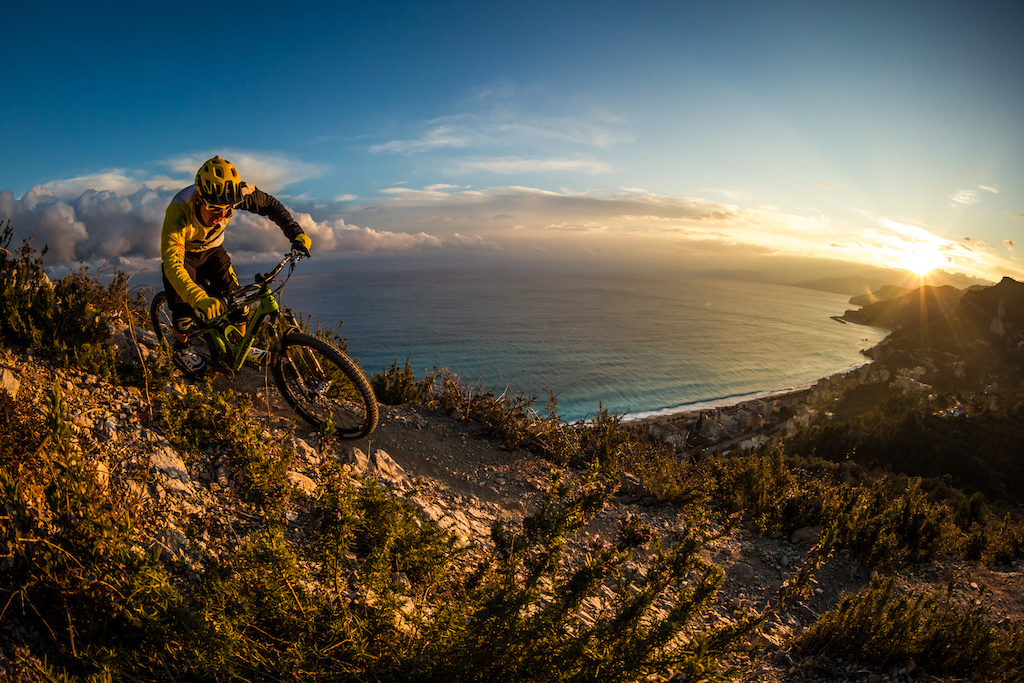
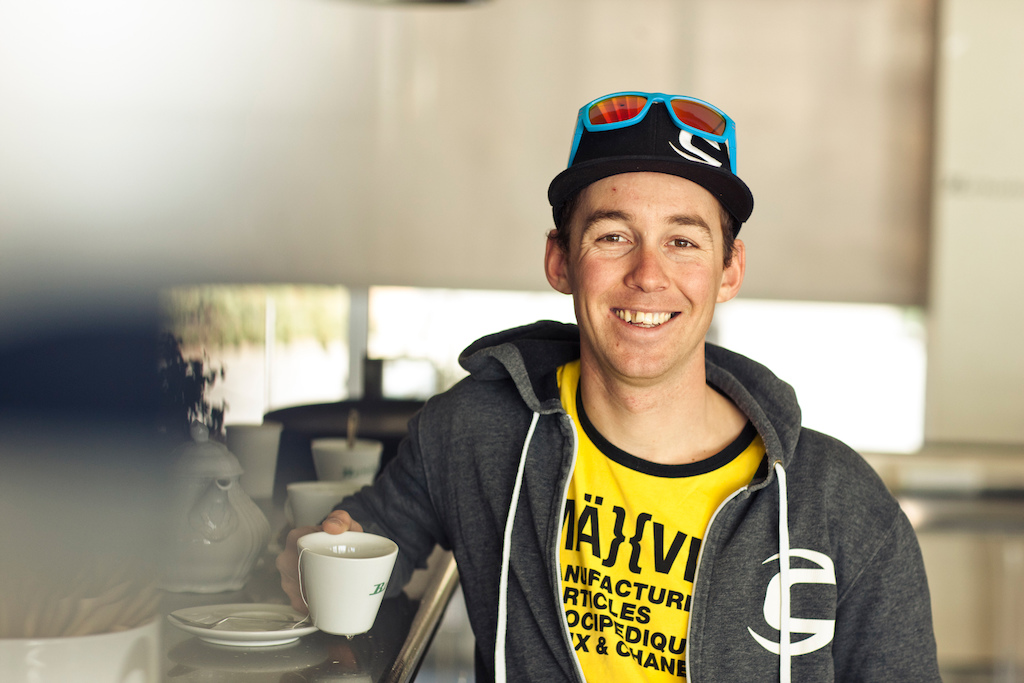
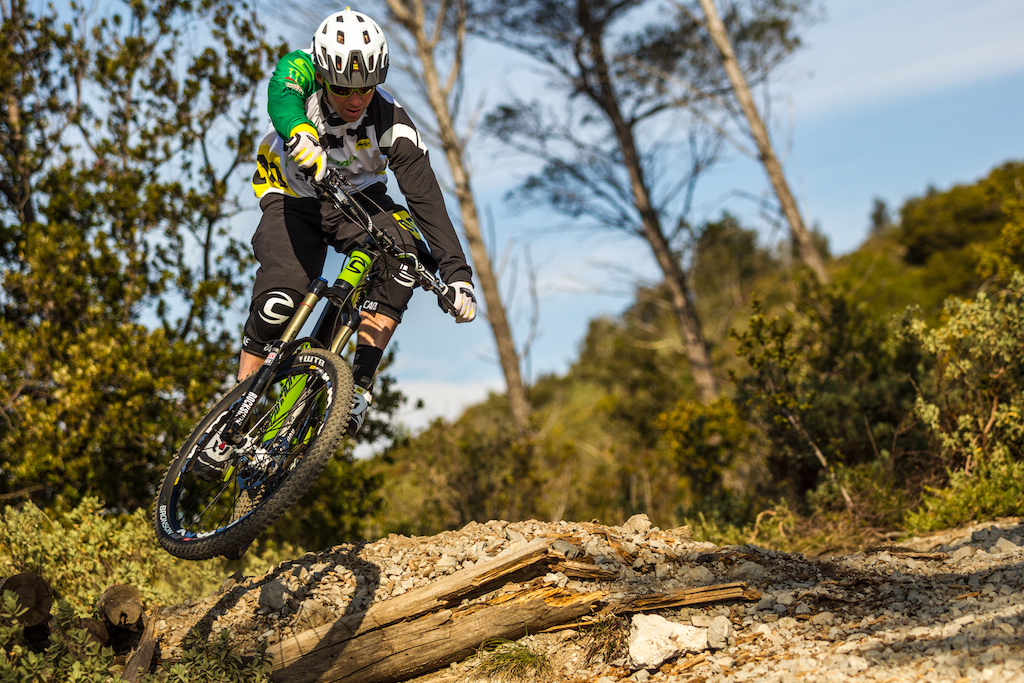
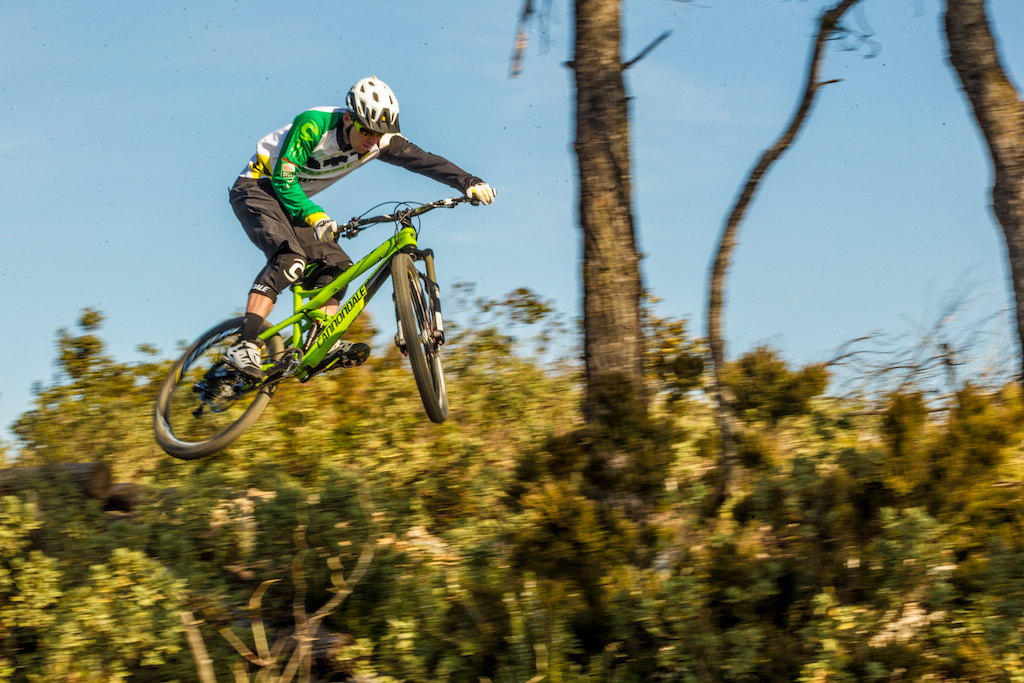
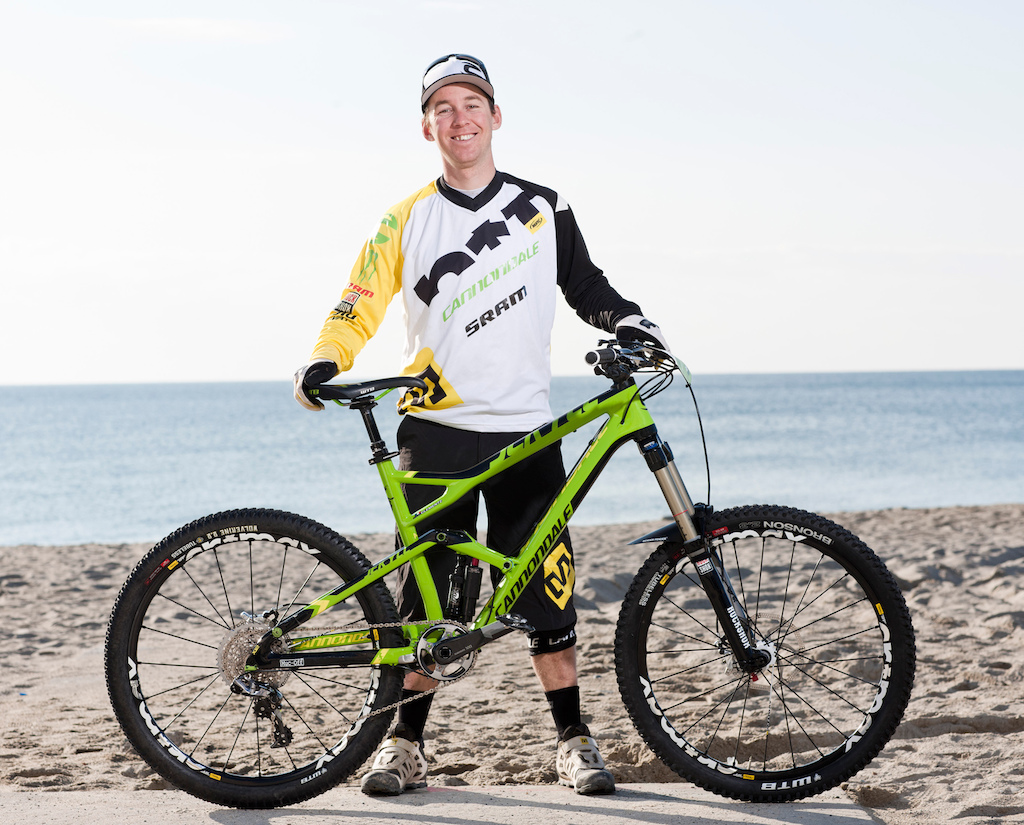
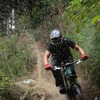
I think someone should tell him that an awful lot of the bikes are still over 15 kg. mine is a lot lighter than average and weighs 14kg.
Wish I would be a better rider to be more often there and not during my anual vacation only!
He enjoys it too; broadly grinning